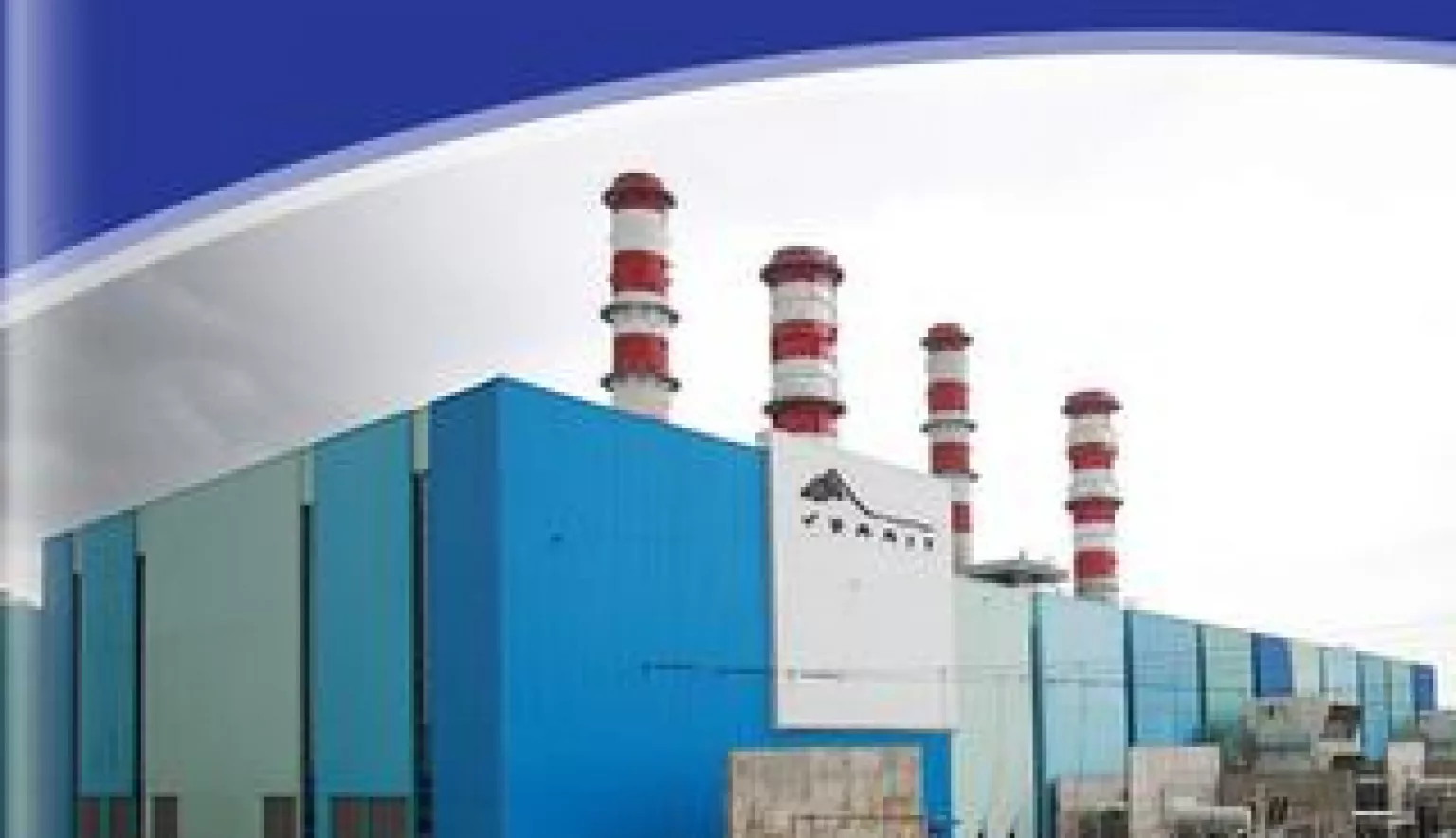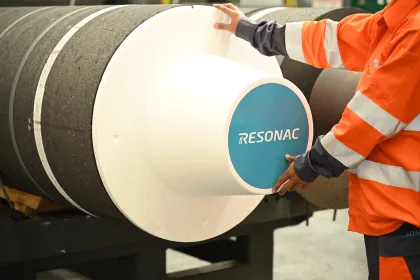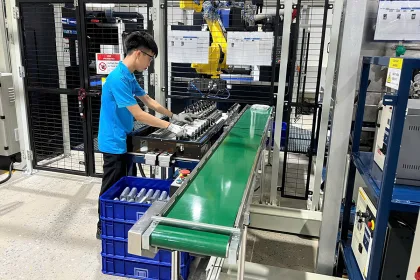Summit Power International Managing Director and CEO Ayesha Aziz Khan explains how the family business continues to deliver major energy infrastructure projects across Bangladesh.
POWER TO THE PEOPLE
Bangladesh is home to one of the fastest growing economies in the world.
The World Bank, in its latest ‘Bangladesh Development Update: Powering the Economy Efficiently’ report, has forecast a seven percent growth for the 2018/19 fiscal year, building on the 7.86 percent expansion seen in the previous period.
Qimiao Fan, World Bank Country Director for Bangladesh, Bhutan, and Nepal, applauded progress made in reducing poverty and pushing human development, adding that growth will remain resilient thanks to strong domestic demand and structural transformation.
The report’s findings, published on 2 October 2018, are certainly welcome news for governing authorities and businesses operating in Bangladesh – however, it also cites the need to avoid complacency.
To achieve its growth aspirations, the World Bank says Bangladesh needs to create more and better jobs by boosting private investment, diversifying exports and building human capital. Further, the country also needs to make doing business easier, complete its megaprojects on a fast track, and improve financial sector governance.
Finally, and of no less importance, is the need to expand a reliable electricity supply to meet the needs of a growing economy.
Much progress has been made in recent years, with access to electricity increasing from 47 percent of the population in 2009 to 80 percent in 2017. But by 2030, electricity demand is expected to grow to 34 GW, more than double the country’s current installed capacity.
This is where organisations like Summit Power International have a crucial role to play.
“This is an extraordinary time in terms of infrastructure investment,” says Managing Director and CEO Ayesha Aziz Khan. “Continued economic growth has facilitated investment in big projects, and power generation is one of the priority areas.
“The business environment in our industry is much different now to what it was 15 years ago when one or two large multinationals would come in and finance, plan and develop projects outside of the country.
“Now, projects can be mostly carried through from start to finish in Bangladesh at far greater speeds. Logistically, we are far less dependent on third party providers than we were a decade back.”
LOCAL ROOTS, INTERNATIONAL REACH
Summit Power International is uniquely positioned to fulfil this demand for power generation.
The firm incorporated in Singapore in 2015 with the backing of the World Bank’s International Finance Corporation, granting it access to global financing, crucial in ensuring the sustainable planning and execution of any major infrastructure project.
Add in the Khan family’s deep Bangladeshi roots and unrivalled knowledge of the local market, and no organisation is better placed to deliver the sort of large-scale natural gas projects the country needs to open up access to electricity to consumers and commerce.
“The business was founded by my father, Muhammed Aziz Khan, around 38 years ago as a business which traded commodities in Bangladesh,” Khan explains. “In the mid-90s the country went through a privatisation process and one of the first sectors to be privatised was the power generation industry. Before this time all operations were completely owned by the state.
“In 1996 the government passed the Private Sector Power Generation Policy of Bangladesh, allowing the private sector to generate power and sell to the state, and this is when Summit entered the power generation space. We co-developed Khulna Power, the first IPP in Bangladesh, along with El Paso and Wärtsilä, and still have a 28.8 percent stake in the enterprise today.”
Khan has been involved with business since graduating in London in 2003 and taking an MBA at Columbia University shortly afterwards. She has worked her way through the ranks, holding several financial positions before becoming Managing Director and CEO of Summit Power International in 2016.
“I feel fortunate to be leading the Company at such an exciting time of growth in Bangladesh,” she adds. “We are the largest independent power producer in the country with a consolidated revenue of $546 million and installed capacity of 1,664 MW.”
Summit established Bangladesh’s first independent power plant in 1997, and today accounts for 21 percent of the country’s private installed capacity and nine percent of its overall power generation capabilities.
POWERFUL PIPELINE
This capacity is set to increase markedly over the next two to three years, not least due to a 590 MW project currently underway at Meghnaghat, just outside the Bangladeshi capital Dhaka.
Expected to commence operations in Q2 of 2021, Meghnaghat II is a CCGT, dual-fuel capable plant being built in partnership with GE, which owns a 20 percent stake in the development. It is projected to cost around $510 million to complete.
“One of the main challenges with a project of this size is to secure feasible financing and make sure all the relevant studies are completed,” Khan says. “This requires a lot of work, but we are in a good moment currently in regard to raising capital.”
“Once finished Meghnaghat II will provide vital added capacity. Although it is only a small percentage of the government’s total generation targets, it represents an important step.”
This will join the existing Meghnaghat I plant, which has an installed capacity of 337 MW (gas) and 315 MW (HSD) and came online in June 2015.
Khan also highlights a floating storage regasification unit (FSRU) project that Summit has developed. Located in Moheshkhali, off the Bay of Bengal, the site will be able to store 138,000 cubic metres of gas once finished by Q2 in 2019. This equates to a distribution potential of 500 million standard cubic feet per day.
The $147 million development is already in advanced stages, with the trenching and laying of the subsea gas delivery pipeline being completed in March 2019.
“The government is looking to import LNG, which will play an important part in fulfilling the demand for electricity,” says Khan. “Although this is our only FSRU project at the moment, this aligns well with our business as it plays to our ability to generate power. Our job, ultimately, is to be available to deliver electricity.”
RECORD-BREAKING
Further down the pipeline is a 2,400 MW development in Matarbari, backed by a $3 billion investment from GE and Japan’s Mitsubishi, the largest private foreign direct investment ever made into Bangladesh.
Unveiled in July 2018, the project is in its infancy, but one which Khan hopes to have in full swing in the not distant future. Implementation is slated for 2023 and will single-handedly double Summit’s generation capacity.
“The signing of this MoU has been more than a year in the making, and is a milstone for the project,” says Khan. “It is a multifaceted development and one of our key priorities over of the next one to two years in terms of getting off the ground. The Matarbari project will change Summit and Bangladesh.”
The work will involve installation of four 600 MW combined-cycle power plants powered by GE’s 9HA gas turbines, construction of two on-shore LNG terminals with a combined capacity of 380,000 cubic metres, oil terminals with 100,000 megatonne capacity, and another 300 MW HFO-based power plant.
AHEAD OF TIME
Summit has been entrusted with developments of this scale and is able to attract investment from global heavyweights because of its formidable track record when it comes to delivering projects on time.
In Gazipur, around 40 kilometres north of Dhaka, the Company recently completed two HFO plants in less than a year, both powered by reciprocating engine technology from long-standing Finnish partner Wärtsilä.
Gazipur I became operational in July 2018 and is a 156 MW facility comprising eight Wärtsilä 18V50 engines and one 20V32 engine. Gazipur II is larger, its 18 Wärtsilä 18V46 engines providing a capacity of 307 MW.
These two rapid developments, carrying a combined value of $294 million, are testament to the expertise and knowhow possessed by Summit and have been recognised by awarding bodies.
At the annual Asian Power Awards in September, Gazipur II was awarded the Fast-Track Power Plant of the Year for achieving construction-to-power generation in just nine months. The same plant also helped Summit scoop the Best Private Power Generation Company award at the Power & Energy Week 2018, handed to the firm by Honourable Prime Minister Sheikh Hasina.
Khan adds: “We take pride of the fact we are continually being recognised for our ability to implement power plants and are grateful to be working with regulators who appreciate and understand the private sector.
“While not all of our plants are built within nine months, no matter what the project or technology being installed, we are able to complete on time and honour our commitments. Through the past 10-12 years of operating we have not encountered any significant delays – we have always been on time.
“The awards are a testament to our hard-working teams, whether they are in our office in Singapore or on the ground at the project site.”
EMPOWERED BY EXPERTISE
Since entering the power generation industry when it was opened up in 1997, Summit Power International has accumulated a tremendous wealth of experience and expertise in project development, including sponsorship, structuring and financing capabilities.
This involves careful cooperation with the multinationals, financial institutions and government agencies, and has resulted in much-needed investment coming into Bangladesh’s energy infrastructure.
Partnering with the likes of GE, Mitsubishi and Wärtsilä also ensures Summit remains a front-runner in the use of advanced technologies, meaning its plants are fitted out with the latest, most efficient equipment.
“Strength certainly does come from experience,” Khan adds. “The longer you work with a technology provider the better you understand that technology. It takes time for two enterprises to understand each other wholly, and our partnerships have developed over years, especially with the likes of Wärtsilä and GE.
“Though we build long-standing relationships, we are open to new ideas and new partners coming on board, as demonstrated by the announcement with Mitsubishi.”
This open-ended approach to innovation also trickles down into Summit’s internal employee culture. The firm is Bangladesh’s largest private employer of engineers, and Khan states that the requisite operational and engineering skills are readily available to recruit.
“We have top quality engineers in our team – it is a clear process for us in terms of recruitment, we hire engineers with the education and provide training and experience on the job.” Khan continues. “We find recruitment for management more challenging, senior managers and mangers for a business such as ours require multiple skills. We focus on finance and have built up a strong finance and commercial team.
“We have had to raise significant capital over the last 15 years with the help of many international institutions and corporations, and this is where our challenge will continue to be. We must be able to fund developments which, once complete, provide power that is affordable.”
SECURING THE FUTURE
By attracting more investment and securing finance for vital energy projects, Summit Power International will continue to chip away at the 34 GW of electricity the World Bank predicts will be required annually by 2030.
The promising strides made in recent years regarding economic growth and lifting more citizens out of poverty look set to be built on, and Khan wants Summit to play its part in writing the next chapter of Bangladesh’s development.
She concludes: “The government is looking to install around 10,000 MW of capacity every five years, capacity which is needed to meet base demand. The country still encounters blackouts and there are still industrial sites and areas of Bangladesh which do not have access to power 24 hours a day.
“We want every citizen and every commercial enterprise to have access to affordable electricity, and will keep working towards this target.”






















